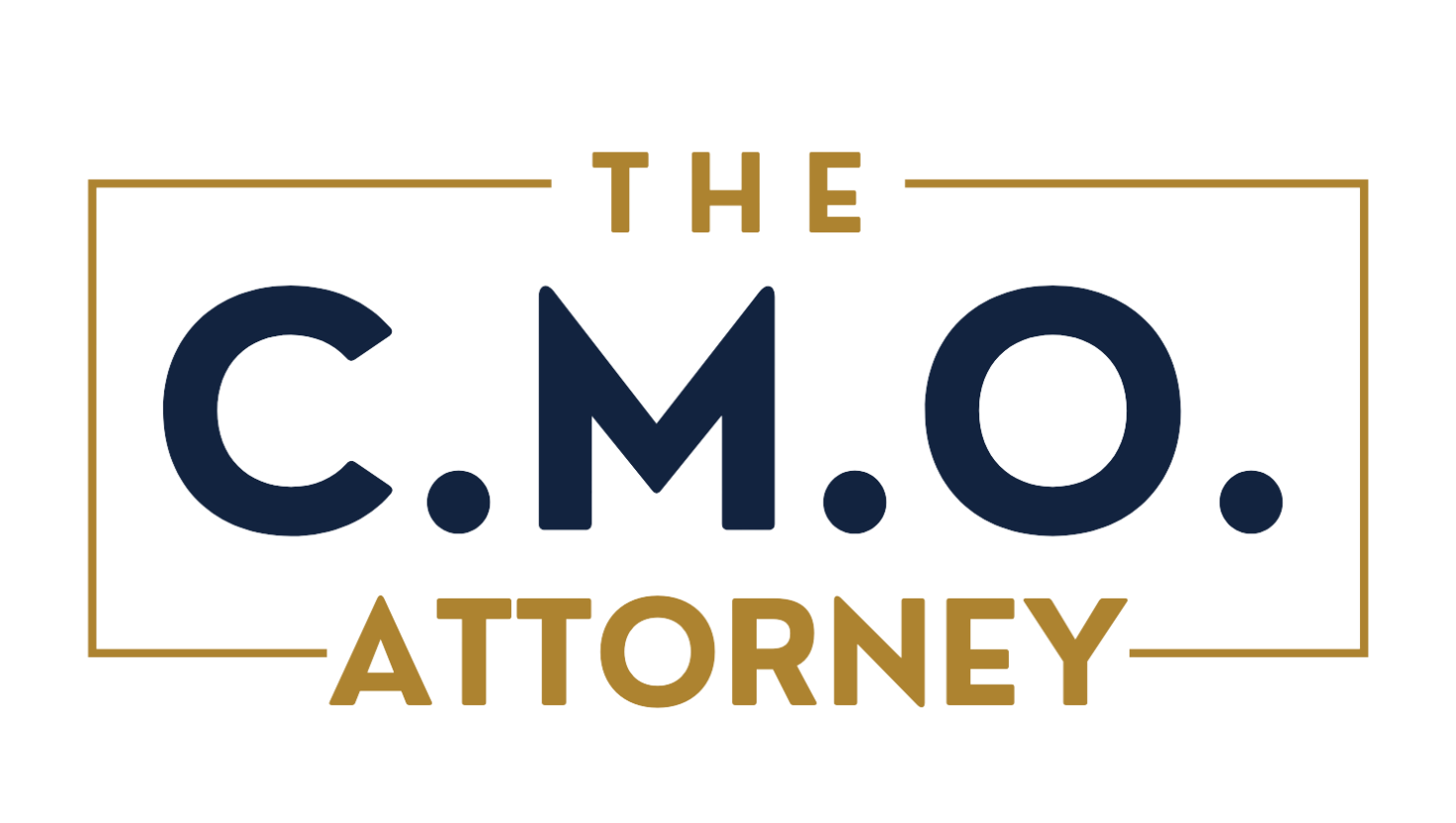 Table Of Contents:
Table Of Contents:
- Identify Your Unique Value Proposition for Legal Services
- Understand the Basics of Digital Marketing for Attorneys
- Build Relationships With Current and Potential Clients
- Implement a Comprehensive Lead Generation Strategy
- Measure and Analyze Your Marketing Efforts
- Maintain Compliance With Legal Marketing Regulations
- Conclusion
How effective is your current law firm marketing plan? Many attorneys struggle to attract and retain clients in a crowded market. This blog post will reveal key strategies, including identifying your unique value proposition and adopting digital marketing basics. Readers will find valuable insights to improve their marketing efforts, address challenges in client engagement, and enhance their overall approach to driving business growth. By focusing on actionable steps, this content aims to equip law firms with the knowledge they need to succeed in today’s competitive legal landscape, ensuring they have the right marketing resources for optimal results. The CMO Attorney wants you to be educated on the role of fractional CMO – so let’s get started, but if you’re ready – we’re here for a free consultation of your firm’s marketing plan and growth strategy!
Identify Your Unique Value Proposition for Legal Services
Identifying a law firm’s unique value proposition (UVP) is essential for effective marketing strategies. Utilizing marketing resources, a strong UVP clearly communicates to potential customers what distinguishes a firm from its competitors, helping set the foundation for lead generation efforts.
A well-defined UVP not only attracts new clients but also enhances content creation across various platforms, including the about us section. By centering the marketing message around the UVP and utilizing marketing resources, a law firm can create relevant website content that resonates with its target audience and addresses their specific needs.
Incorporating the UVP into targeted advertising campaigns allows law firms to reach the right customers more efficiently. By utilizing our marketing resources, this targeted approach ensures that advertising efforts generate higher engagement rates, ultimately leading to a greater return on investment. To learn more, visit the about us section or explore what is a fractional cmo.
Regularly revisiting and refining the UVP is crucial as market dynamics evolve. By staying attuned to changes in the legal landscape, law firms can ensure their marketing strategies remain effective and continue to attract leads that convert into long-term clients.
James Frazier | The CMO Attorney | Fractional CMO
Understand the Basics of Digital Marketing for Attorneys
An effective attorney marketing plan begins with developing an engaging website that enhances visibility and user experience. Law firms should optimize for local SEO to target relevant clients and create quality content that addresses legal issues. Implementing effective call-to-actions in online advertising ensures potential clients take desired steps. This strategic approach improves return on investment and supports overall marketing success.
Develop an Engaging Website
Developing an engaging website is a fundamental element of any successful attorney marketing strategy. Law firms can enhance their online presence by focusing on user experience, which includes easy navigation, clear information architecture, and professional design. Adding client testimonials prominently can build trust and credibility, addressing potential clients’ concerns regarding their selection process and demonstrating a firm’s commitment to ethics and client satisfaction.
Furthermore, an engaging website should incorporate valuable content that speaks directly to the target audience’s needs. Providing insights into legal issues, service offerings, and case studies can position a firm as an authority in its field, ultimately driving revenue. Regularly updating the site with relevant content not only improves search engine visibility but also keeps clients informed and engaged, which is crucial for converting leads into long-term relationships.
Optimize for Local SEO
Optimizing for local SEO is crucial for law firms, especially those specializing in areas like criminal defense, estate planning, divorce, or contract law. By accurately listing their services on platforms such as Google My Business, firms can enhance their visibility in local searches. This approach allows potential clients in need of legal representation to easily find and contact them, ultimately improving the chances of converting those leads into clients.
Moreover, conducting thorough research on local keywords and incorporating them into website content strengthens a firm’s local SEO strategy. For example, terms like “experienced criminal defense lawyer near me” or “top estate planning attorney” can attract target clients actively searching for legal assistance. Regularly updating content and engaging with clients through testimonials and case results further solidifies a firm’s presence, addressing the specific pain points and needs of potential clients.
Create Quality Content Focused on Legal Issues
Creating quality content focused on legal issues is vital for law firm websites to attract and engage potential clients. Well-researched articles and resources addressing common legal questions—such as those related to intellectual property, contract disputes, or family law—can position a firm as a knowledgeable authority in the field. This type of content not only improves brand awareness through organic search traffic but also fosters trust among prospective clients, making them more likely to reach out for legal assistance.
Furthermore, incorporating insights into social media marketing can amplify the reach of legal content. Sharing valuable articles and resources across platforms helps law firms engage with their audience and drive traffic back to their websites. This strategic approach not only enhances a firm’s online presence but also ensures that valuable information is readily available to those seeking legal guidance, addressing their specific needs while reinforcing the firm’s reputation in legal marketing.
Use Effective Call-to-Actions
Effective call-to-actions (CTAs) are essential elements of any digital marketing strategy for attorneys. These prompts guide potential clients toward specific actions, making it easier for them to engage with legal services. For instance, a well-placed CTA could invite visitors to download a legal guide or schedule a consultation, directly addressing their need for knowledge in navigating legal challenges. Incorporating CTAs on a firm’s website can significantly improve search engine optimization by increasing user engagement, leading to better rankings in search results.
Moreover, leveraging CTAs within content reinforces reputation management by demonstrating a firm’s commitment to providing valuable resources. Effective CTAs connect directly to the unique offerings of a law firm, such as informational webinars on continuing legal education topics or accessible legal tips addressing common issues. By focusing on the specific concerns of potential clients, law firms can create trust and encourage interaction, ultimately enhancing their marketing to attorneys and improving client acquisition efforts.
Build Relationships With Current and Potential Clients
Engaging with current and potential clients is critical for attorneys looking to thrive in the personal injury sector. Using social media platforms allows for direct interaction, while participation in community events fosters local connections. Additionally, offering free consultations can attract new clients. Each of these strategies helps law firms effectively reach their target market and enhances the overall marketing approach.
Engage on Social Media Platforms
Engaging on social media platforms is essential for law firms aiming to build strong relationships with both current and potential clients. By consistently sharing expert insights, relevant legal news, and informative content related to corporate law, firms can enhance their online reputation. Moreover, social media serves as an effective attorney advertising channel, allowing firms to reach a broader audience and interact directly with potential clients, which can lead to increased trust and brand loyalty.
Additionally, strategically sharing valuable resources can improve a firm’s website traffic and create valuable backlinks. For instance, thoughtful posts that answer common legal questions empower potential clients with knowledge, demonstrating the firm’s commitment to service. By becoming a go-to source for information, law firms not only strengthen their relationships with clients but also position themselves as authorities in their respective fields, ultimately driving successful marketing outcomes.
Participate in Community Events
Participating in community events allows law firms to connect directly with potential clients and local audiences. By offering free legal advice at these gatherings, attorneys can showcase their expertise and enhance their visibility within the community. For instance, collaborating with a bar association to host a legal Q&A session can attract attendees seeking guidance, fostering trust and encouraging follow-up inquiries without any initial fee, ultimately leading to sustained client relationships.
Moreover, community events provide an excellent opportunity for attorneys to promote their services through social media. Sharing updates, photos, and insights from these events on various platforms can significantly increase online engagement and improve search engine visibility. By actively participating in local initiatives, law firms not only strengthen their brand but also position themselves as community-oriented professionals, appealing to clients who value personal connections and accessible legal support.
Offer Free Consultations to New Clients
Offering free consultations to new clients is an effective strategy for law firms to establish a strong brand presence in the competitive legal landscape. By providing this initial service, a lawyer can build trust and rapport with potential clients, making them feel valued and understood. This approach not only positions the firm as accessible but also enhances its visibility in local search results, attracting individuals actively seeking legal assistance.
Furthermore, free consultations can serve as an opportunity for firms to showcase their expertise in law firm marketing and content marketing. During these sessions, attorneys can address specific legal concerns, thereby demonstrating their commitment to client needs without any initial financial commitment. This strategy helps convert inquiries into long-term relationships, ultimately solidifying the firm’s reputation and effectiveness in securing new business.
Implement a Comprehensive Lead Generation Strategy
Implementing a comprehensive lead generation strategy is fundamental for law firms looking to boost their marketing efforts. Utilizing pay-per-click advertising enables attorneys to reach their target audience efficiently, while generating leads through email campaigns fosters ongoing engagement. Additionally, leveraging online reviews and testimonials enhances credibility, ultimately driving growth. These elements, supported by groups like the American Bar Association and local chamber of commerce, form an effective digital marketing strategy tailored for attorneys.
Utilize Pay-Per-Click Advertising
Utilizing pay-per-click (PPC) advertising can significantly enhance lead generation for law firms, providing an effective way to reach potential clients while adhering to attorney advertising rules. PPC campaigns allow firms to target specific keywords related to their legal services, ensuring visibility among individuals who are actively searching for representation. By analyzing performance through analytics, firms can fine-tune their strategies, making data-driven adjustments that improve conversion rates and maximize return on investment.
Moreover, blending PPC advertising with email marketing can amplify outreach efforts. For instance, after capturing leads through PPC ads, firms can follow up with targeted email campaigns to nurture those relationships. This dual approach not only fosters credibility with potential clients but also positions the firm as a trusted source of legal support, ultimately driving engagement and encouraging new business in the competitive legal commerce landscape.
Generate Leads Through Email Campaigns
Email campaigns play a crucial role in the comprehensive lead generation strategy for law firms navigating the competitive legal landscape. By crafting targeted messages that address the specific needs of potential clients, lawyers can effectively capture interest and drive traffic to compelling landing pages. Integrating tools like Avvo in these campaigns not only enhances credibility but also presents a reliable source for prospects seeking legal assistance, fostering trust from the outset.
Moreover, consistent communication through well-designed email templates allows attorneys to remain top-of-mind for leads. Including valuable legal insights and updates reinforces a firm’s position as an expert in its field, encouraging recipients to engage further. This approach not just enhances lawyer marketing efforts but also streamlines the process of converting leads into clients, ultimately supporting the growth goals of the practice.
Leverage Online Reviews and Testimonials
Leveraging online reviews and testimonials are powerful law firm marketing strategies for lawyers looking to build credibility and attract new clients. Positive feedback from satisfied clients serves as social proof, reassuring potential clients that they are making the right choice. By showcasing these testimonials prominently on their websites and social media platforms, firms can effectively communicate their commitment to client satisfaction and quality service, making a strong impression on prospects.
Incorporating online reviews into marketing efforts also enhances a firm’s visibility in search engine results. Search engines often prioritize businesses with credible reviews, which can improve a firm’s local SEO performance. Encouraging clients to share their experiences through platforms like Google My Business or legal-specific review sites can drive engagement and foster trust, ultimately supporting lead generation and promoting long-term client relationships.
Measure and Analyze Your Marketing Efforts
Monitoring website traffic and user engagement is essential for law firms aiming to refine their marketing strategies. By utilizing analytics tools, attorneys can make data-driven decisions that enhance performance. Adjusting marketing efforts based on these performance metrics ensures that strategies remain effective and aligned with client needs. This section will delve into the importance of each of these elements for successful attorney marketing plans.
Monitor Website Traffic and User Engagement
Monitoring website traffic and user engagement is critical for law firms to understand the effectiveness of their marketing strategies. Using tools like Google Analytics, attorneys can track metrics such as page views, session duration, and bounce rates, allowing for informed adjustments that align with the interests of potential clients. For instance, if a particular legal blog attracts consistent traffic, this may indicate the need for similar content to capture and convert more leads.
Furthermore, analyzing user engagement helps identify how visitors interact with a firm’s website. Metrics such as the click-through rate on call-to-action buttons reveal the effectiveness of marketing materials and navigational ease. By studying these patterns, law firms can improve user experience and increase conversions, ultimately enhancing their overall marketing effectiveness and client acquisition efforts.
Utilize Analytics Tools for Data-Driven Decisions
Utilizing analytics tools is vital for law firms seeking to refine their marketing strategies through data-driven decisions. By employing platforms like Google Analytics, firms can monitor essential metrics such as visitor demographics, traffic sources, and user behavior on their websites. This valuable information enables attorneys to understand which marketing efforts yield the best results, allowing them to focus resources on strategies that effectively attract potential clients and drive engagement.
Furthermore, analytics tools can help identify opportunities for content improvement, enhancing the overall marketing performance. For example, if a specific legal service page generates significant traffic but has a high bounce rate, it may indicate that the content does not meet visitor expectations. By analyzing these insights, law firms can make informed adjustments to their content strategy, ensuring they provide relevant information that addresses the needs of potential clients effectively.
Adjust Strategies Based on Performance Metrics
For law firms, adjusting strategies based on performance metrics is fundamental to enhancing their marketing effectiveness. By closely monitoring key performance indicators, such as click-through rates and conversion rates, legal practices can identify which campaigns resonate with their target audience. For example, if an email campaign shows high open rates but low engagement, it may be necessary to revisit the content strategy to ensure it meets potential clients’ interests and needs.
Furthermore, making data-driven adjustments helps firms allocate their resources more efficiently. If analytics reveal that a specific social media platform is generating a significant number of leads, law firms can focus more attention and budget on that channel. This targeted approach not only maximizes ROI but also builds stronger connections with prospective clients, ultimately driving growth and establishing trust in the firm’s expertise.
Maintain Compliance With Legal Marketing Regulations
Understanding ethical advertising practices, keeping up with local bar association guidelines, and ensuring transparency in all communications are vital components of effective attorney marketing. These elements help law firms navigate complex regulations while building trust with clients. Each of these aspects will be explored further to provide practical insights into maintaining compliance within legal marketing strategies.
Understand Ethical Advertising Practices
Understanding ethical advertising practices is vital for law firms aiming to build trust and credibility with potential clients. Attorneys must adhere to specific guidelines set forth by local bar associations, which often include rules regarding truthful representations, avoiding misleading claims, and maintaining client confidentiality. By ensuring compliance with these standards, firms can develop marketing strategies that not only attract clients but also foster a reputation for integrity in their legal practice.
Moreover, ethical advertising practices empower law firms to create compelling marketing messages that resonate with their target audience while remaining within legal boundaries. Providing clear and accurate information about services and fees establishes transparency, a critical factor in gaining client trust. By focusing on ethical practices, law firms can differentiate themselves in a competitive market, ultimately leading to stronger client relationships and sustainable growth.
Keep Up With Local Bar Association Guidelines
Staying informed about local bar association guidelines is essential for law firms to maintain compliance with legal marketing regulations. Each state has established its own set of rules regarding attorney advertising, and being aware of these guidelines can prevent unintentional violations. For instance, attorneys must ensure that their promotional materials do not contain misleading information or guarantees about case outcomes, as these could lead to disciplinary actions and damage their professional reputation.
Regularly reviewing and updating marketing strategies in accordance with local bar association guidelines helps law firms build trust with potential clients by portraying a commitment to ethical practices. Implementing a system for tracking changes in regulations allows attorneys to adapt their advertising efforts promptly. This proactive approach not only safeguards the firm from compliance issues but also positions them favorably in the eyes of clients who value transparency and integrity in legal representation.
Ensure Transparency in All Communications
Ensuring transparency in all communications is fundamental for law firms seeking to establish trust with potential clients. Clear and honest messaging about services, fees, and case outcomes not only aligns with ethical advertising practices but also helps clients feel informed and confident in their choices. By openly addressing potential concerns and avoiding misleading claims, firms can foster strong relationships that translate into long-term client loyalty.
Moreover, maintaining transparency in client interactions and marketing materials enhances a firm’s reputation within the legal community. For example, providing detailed descriptions of the attorney‘s qualifications and areas of expertise can reassure clients about their decision-making process. By prioritizing transparency, law firms can compete more effectively while ensuring they remain compliant with legal marketing regulations, ultimately strengthening their overall marketing plans.
Conclusion
A successful attorney marketing plan hinges on identifying a unique value proposition that sets a law firm apart from competitors, while engaging effectively with clients through digital marketing strategies. By optimizing websites for local SEO, creating quality content, and utilizing targeted advertising, firms can attract and convert leads efficiently. Building strong relationships with current and potential clients through social media and community involvement fosters trust and enhances brand reputation. Ultimately, consistently measuring and refining marketing efforts ensures that law firms remain competitive and relevant in an ever-changing legal landscape.
Contact a Fractional CMO with The CMO Attorney Today!
Engaging a fractional Chief Marketing Officer (CMO) at The CMO Attorney offers law firms access to expert marketing strategies without the financial commitment of a full-time hire. This approach enhances efficiency, objectivity, and swift implementation of tailored solutions that drive growth and improve brand visibility. By aligning business goals with CMO expertise, firms can capitalize on unique industry insights and optimize their marketing efforts. Embracing these benefits empowers legal practices to navigate a competitive landscape effectively, ensuring sustained success and a strong market presence. Contact us today to schedule your free consultation!



 Table Of Contents:
Table Of Contents:
 Table Of Contents:
Table Of Contents:
 Table Of Contents:
Table Of Contents:
 Table Of Contents:
Table Of Contents: